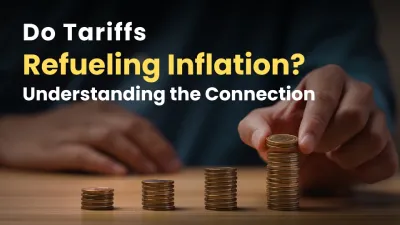简体中文
繁體中文
English
Pусский
日本語
ภาษาไทย
Tiếng Việt
Bahasa Indonesia
Español
हिन्दी
Filippiiniläinen
Français
Deutsch
Português
Türkçe
한국어
العربية
Daily Market Diary
Abstract:Powered by WikiFX
The Fed's US Bank Rescue Impacts Markets.
Silicon Valley Bank's failure and the government's rescue of its depositors are shaking market bets on the economy and US interest rates.
Authorities pledged to fully protect depositors' money and offer banks one-year loans on more favorable terms to calm concerns about the US financial system. Market participants expect short-term sentiment boosts but long-term moral hazard. Investors and strategists say:
Uplifting

TD Securities global interest rates strategy head Priya Misra
“Bank liquidity and capital concerns will remain even if SVB is sold. Bank liquidity from the new BTFP program should boost sentiment. . Despite high inflation, we remain long 10s. We expect a 25bp Fed hike in March and 5.75% terminal rate.”
Immorality
Rabobank strategists Michael Every and Ben Picton
If the Fed is now backing anyone facing asset/rates pain, they are de facto allowing a massive easing of financial conditions and rising moral hazard. ц
Uncertainty
Capital Economics North America chief economist Paul Ashworth
“Rationally, this should be enough to stop any contagion from spreading and taking down more banks, which can happen instantly in the digital age. However, contagion has always been about irrational fear, so we cannot guarantee success.”
pause
Goldman Sachs' Jan Hatzius and team
In light of recent banking system stress, we no longer expect the FOMC to raise rates at its Mar. 22 meeting with considerable uncertainty about the path beyond March.
Assistance
UBS analyst Erika Najarian
US bank stocks may experience a sharp relief rally. “Our clients may continue to prefer flight to quality, which are ironically the Too Big Too Fail But Now Have Been Regulated Into Having Tons of Liquidity and Capital Banks'”—JPMorgan, Bank of America, and Wells Fargo.
Dollar Stress
ANZ Bank strategist John Bromhead
“The policy response should calm the system. Policymakers ring-fenced the risk and avoided a systematic event, similar to the UK pension crisis in September or October. Risk-sensitive currencies are rebounding, which is dollar-negative. Even if financial system concerns subside, USD pressure may persist.”
Disclaimer:
The views in this article only represent the author's personal views, and do not constitute investment advice on this platform. This platform does not guarantee the accuracy, completeness and timeliness of the information in the article, and will not be liable for any loss caused by the use of or reliance on the information in the article.
Read more

Why Fed Keeps Interest Rates Unchanged, How Does It Affect To Forex Market?
Fed keeps interest rates at 4.25%–4.50%, impacting forex market. Dollar may rise as tariffs loom. Explore why rates unchanged and forex effects.

Do Tariffs Refueling Inflation? Understanding the Connection
Investigate how tariffs impact inflation. Learn how trade barriers influence prices and the broader economic landscape.

A Must-To-Watch Top Trading Pairs This 2025
Discover the top trading pairs to watch this week, including Bitcoin, Euro, USD, and more. Market trends, key resistance levels, and price movements analyzed.

Will Trump's Trade Policies Fuel Inflation? BlackRock Warns of Economic Risks
Bitcoin and crypto prices plummet as recession fears and inflation warnings shake markets. Experts warn of prolonged economic challenges ahead.
WikiFX Broker
Latest News
The Withdrawal Trap: How Scam Brokers Lure Victims into Paying More
FCA to Investors: Think Twice Before Trusting These Brokers
Trump\s tariffs: How could they affect the UK and your money
Trump gambles it all on global tariffs he\s wanted for decades
TradingView Brings Live Market Charts to Telegram Users with New Mini App
Trump tariffs: How will India navigate a world on the brink of a trade war?
Interactive Brokers Launches Forecast Contracts in Canada for Market Predictions
IG Group Acquires Freetrade for £160M to Expand UK Investment Market
U.S. March ISM Manufacturing PMI Released
Should You Beware of Forex Trading Gurus?
Currency Calculator







